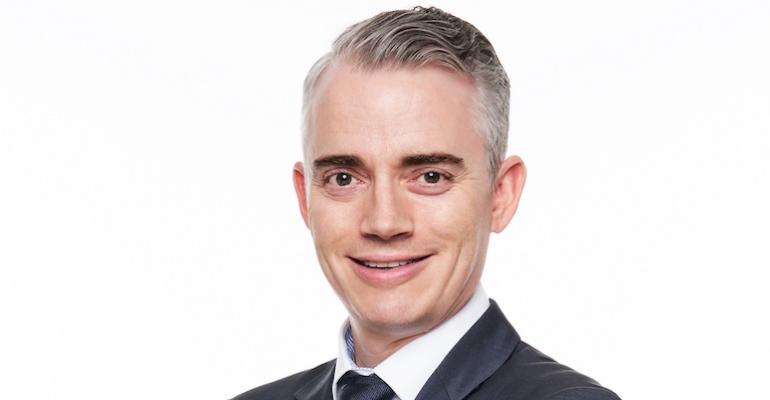In the fifth in a series of interviews ahead of Seatrade Maritime Logistics Middle East, Ian Edwards, Area Manager Middle East and Africa, DNV Maritime, spoke to Seatrade Maritime News about developments in the industry.
“With the region’s trade continuously expanding, the maritime industry’s significance is also growing. Dubai and Abu Dhabi are not only essential trading hubs but are also quickly becoming the preferred destinations for maritime activities in the wider Middle East region, the Indian subcontinent, and Africa,” he said.
“The Middle East countries’ visions to achieve net-zero emissions by 2050 (UAE) and 2060 (Saudi Arabia) represent a significant shift in their approach to energy and sustainability. The shipping and offshore industries, as well as other sectors, will need to play an active role in achieving these targets, but there are also significant opportunities for investment and growth in this space.”
For a long time, DNV’s focus has been on the introduction of electronic certificates across the fleet to streamline interactions with regulators and class. However, it has also put in a lot of effort to create awareness that cyber-security should be an essential part of daily operations both on board and ashore. To achieve this, it provides class notations to verify the cyber resilience of vessels and systems.
A key issue facing Middle East-based shipowners and operators is the decarbonisation question, which, Edwards said, presented the maritime industry with its greatest challenge ever. With many new fuel options emerging, the already complex future fuel and technology picture for the industry was becoming even more so.
“As the shipping industry moves towards decarbonisation, it is crucial to re-evaluate risk management to ensure safety remains a top priority in developing new fuel systems and digitalised ways of working. DNV stresses the need for renewed risk controls, a new regulatory approach based on individual fuel assessments, and greater industry knowledge and experience of potential safety risks. Class plays a crucial role in this regard, and DNV has taken the lead in joint industry projects to develop safety guidelines for using hydrogen and batteries,” he said.
“DNV as a classification society can play a very special part, because of our historical role and the depth and breadth of experience in the Group, we can propose innovative solutions to address the decarbonisation challenge. We firmly believe that Class has an important role in this regard by acting as trailblazers for regulators, gathering expertise, partnering with industry, and developing guidelines.”
As part of its commitment to renewable energy in the region, DNV recently signed an MOU with Petrojet, an Egyptian engineering and construction company, to leverage Petrojet’s local knowledge and expertise to support the successful execution of green hydrogen projects in Egypt.
“DNV’s involvement in this project is significant, as we have an extensive expertise in renewable energy, power grids, and hydrogen technologies. This joint effort aims to accelerate the transition to a sustainable energy system in Egypt, with a focus on utilising the country’s abundant renewable energy resources to produce green hydrogen,” he said.
“The initiative aligns with Egypt’s long-term strategy for sustainable development and the country’s commitment to the Paris Agreement. It represents a positive step towards promoting the adoption of green hydrogen in the Middle East region, which has enormous potential for renewable energy development.”
The complexity and the many different stakeholders that will all need to work together to enable the energy transition of the shipping industry are immense, he believes.
“So much more has to come together to enable this—digital, new fuels, regulations to ensure safety, landside fuel production, transport and bunkering—a massive rollout of zero-carbon energy. All of these different industries and stakeholders need to combine and work together—this is really why we believe in the idea that collaboration is the fuel of the future,” he said.
“DNV’s expertise is at our customers’ service, to support them in addressing transformations and capitalise on the rising opportunities. Together we can play a leading role in the transition to a more sustainable world.”
Ian Edwards, Area Manager Middle East and Africa, DNV Maritime, is speaking at Seatrade Maritime Logistics Middle East, on May 16-18, 2023, in Dubai, UAE.
Copyright © 2024. All rights reserved. Seatrade, a trading name of Informa Markets (UK) Limited.
Add Seatrade Maritime News to your Google News feed.  |


